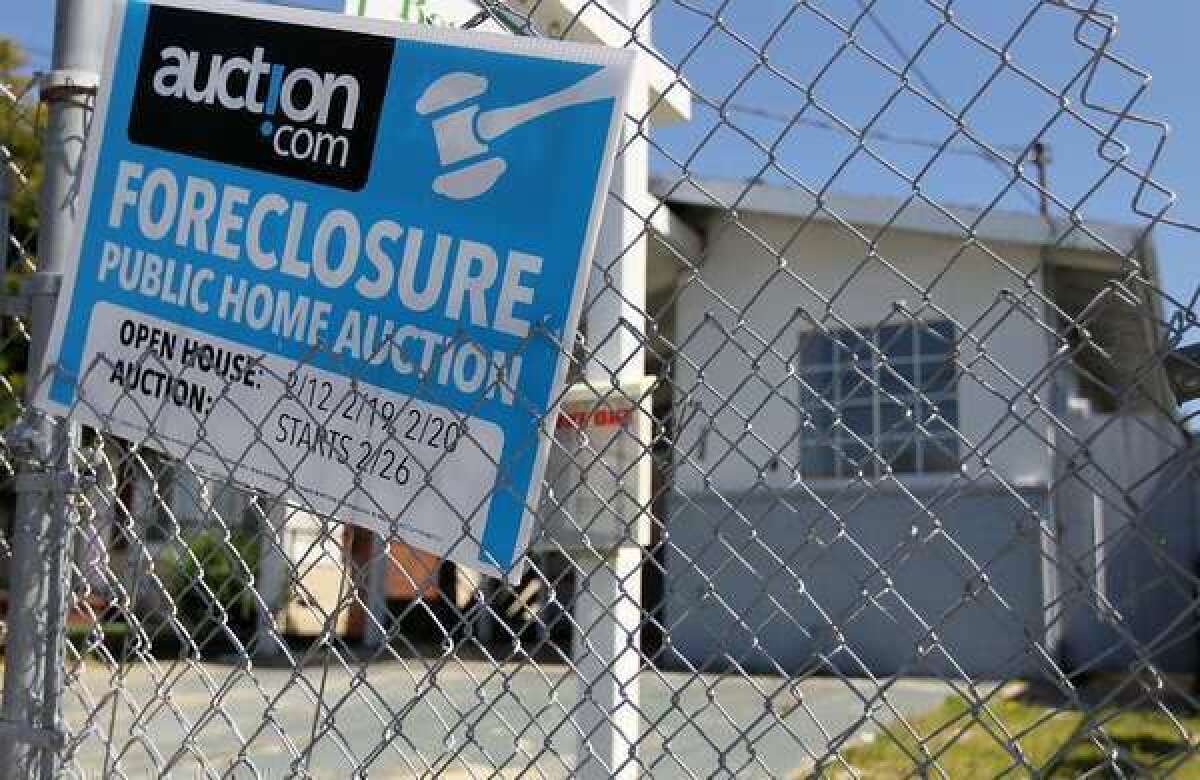Will Richmond take eminent domain too far?

Richmond is taking action on its housing crisis, but is the California city going too far in its mission to save homeowners from underwater mortgages?
On Tuesday, Richmond sent notices to holders of underwater mortgages asking them to sell their loans to the city or risk having the city use eminent domain to seize residential mortgages. While other cities have considered adopting a plan that would allow them to invoke eminent domain, Richmond appears to be the first city to do so.
It’s a controversial move in part because “eminent domain is usually used to seize land -- not loans -- to serve the public good, as when local governments seize blighted properties,” explains Times reporter Alejandro Lazo. To some, as Times reader “cranios” says on our comments board, it’s unfair to “bully the mortgage holders to sell out at a loss.”
But in our Op-Ed pages last month, Robert Kuttner, co-editor or the American Prospect, took an optimistic view of the strategy, writing:
Eminent domain more typically is used to destroy neighborhoods for new development. In this case, it could instead save neighborhoods. If eminent domain became a general strategy, it could spare an estimated 3 million to 4 million families the loss of their homes.
But is this too rosy a view?
When San Bernardino considered instituting eminent domain last year, The Times’ editorial board warned the city to proceed with caution.
Although governments have used it in the past to seize all kinds of property in the name of the public good, eminent domain remains a drastic step that, when asserted in a novel way, can send shock waves through a market. […]
Seizing underwater loans from those complex securities would let local governments do what investors haven’t been able to do for themselves, which is minimize the foreclosures that are reducing the value of their securities.
The trade groups that represent investors and lenders aren’t buying that argument. They contend that seizing securitized mortgages would spook investors, drying up the supply of money for new mortgages.
Their warnings may very well be exaggerated, but it would be pointless to implement the Mortgage Resolution Partners plan if every use of eminent domain drew a lawsuit. That means county officials will have to mollify the objectors before moving forward. They also have to make the case that reducing the risk of foreclosures justifies seizing loans regardless of whether the borrowers are capable of paying them off — an approach that raises tough questions about fairness. Finally, they need to show that it’s appropriate to use eminent domain to generate profits for one group of investors (and local governments) at the apparent expense of another group of investors.
Richmond Mayor Gayle McLaughlin is understandably concerned that her community’s future is at stake. But before proceeding, shouldn’t she be sure that this plan can actually help turn around the city?
ALSO:
What Pope Francis said, and meant, about gays
Smartphone vigilantes ride in Huntington Beach
Goldberg: Bending the Trayvon Martin tragedy to fit
Follow Alexandra Le Tellier on Twitter @alexletellier and Google+
More to Read
A cure for the common opinion
Get thought-provoking perspectives with our weekly newsletter.
You may occasionally receive promotional content from the Los Angeles Times.





